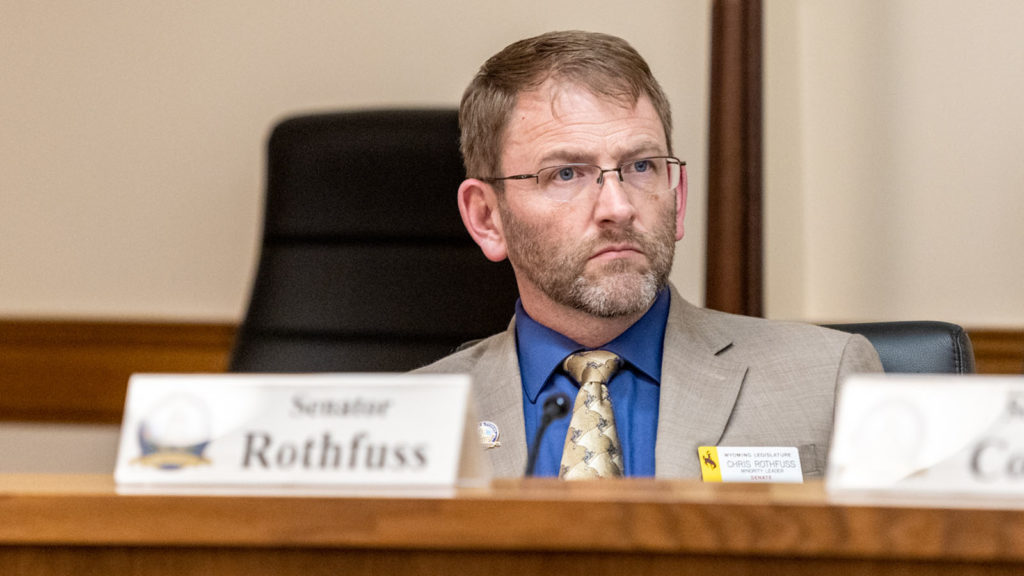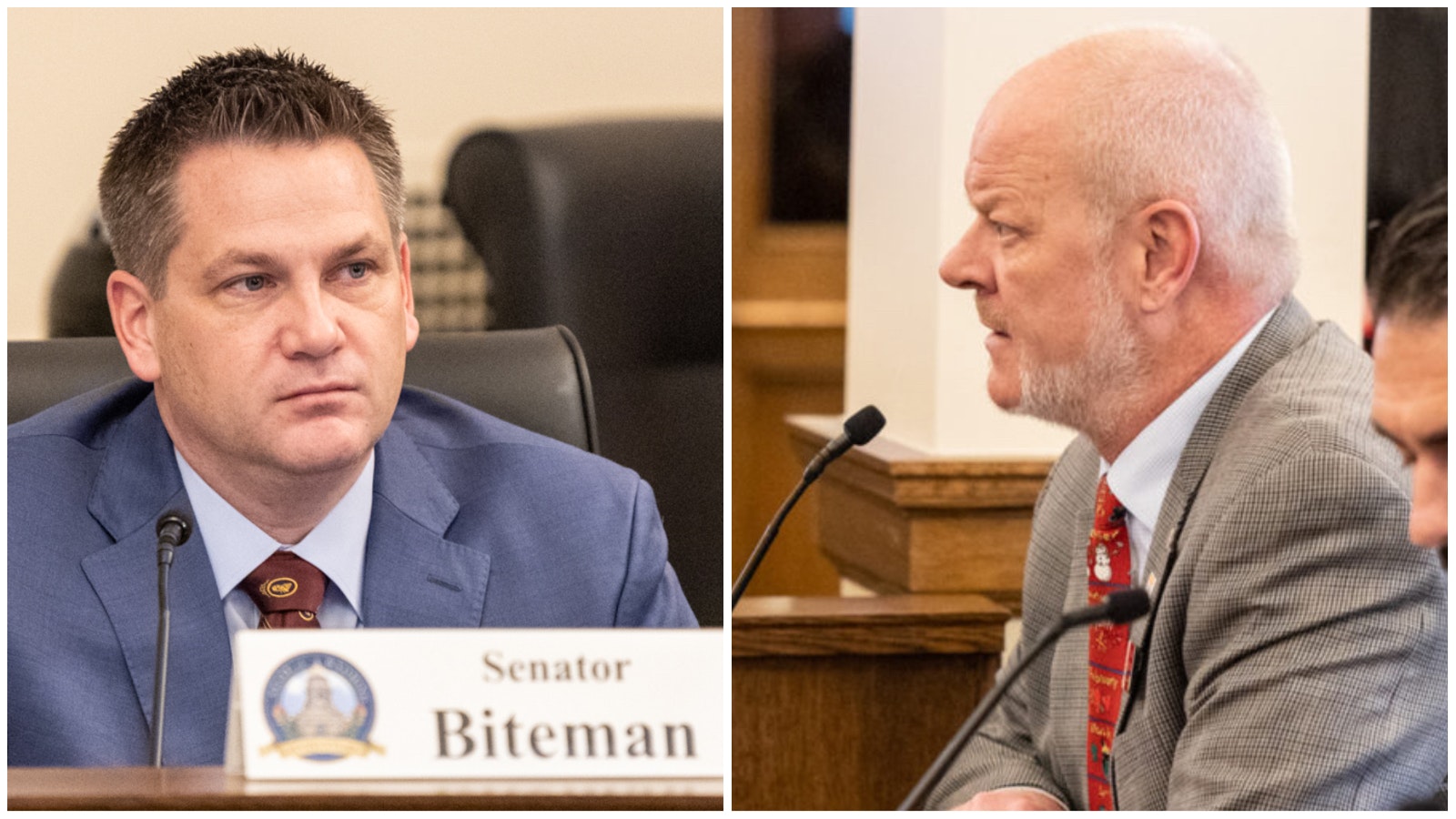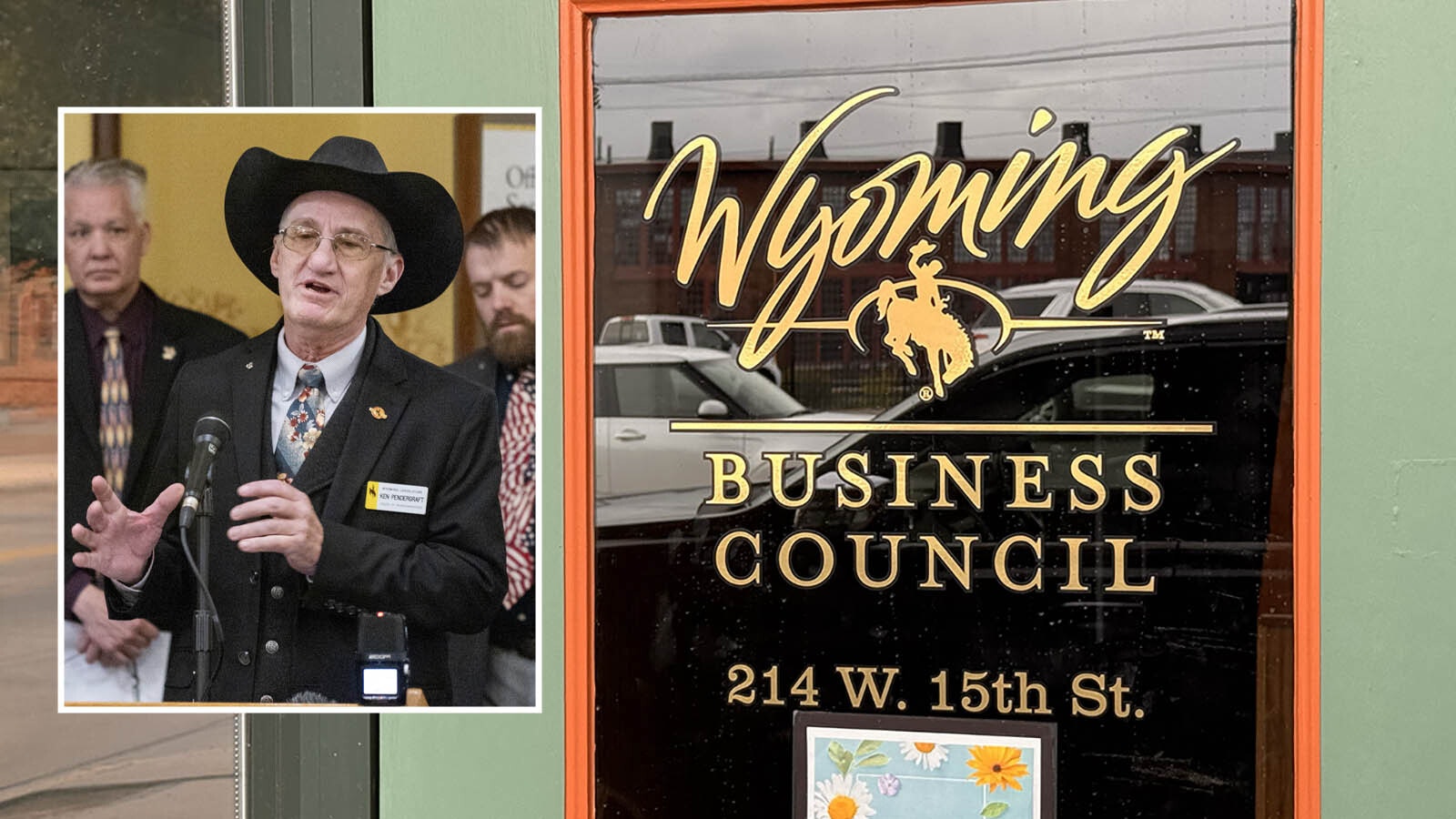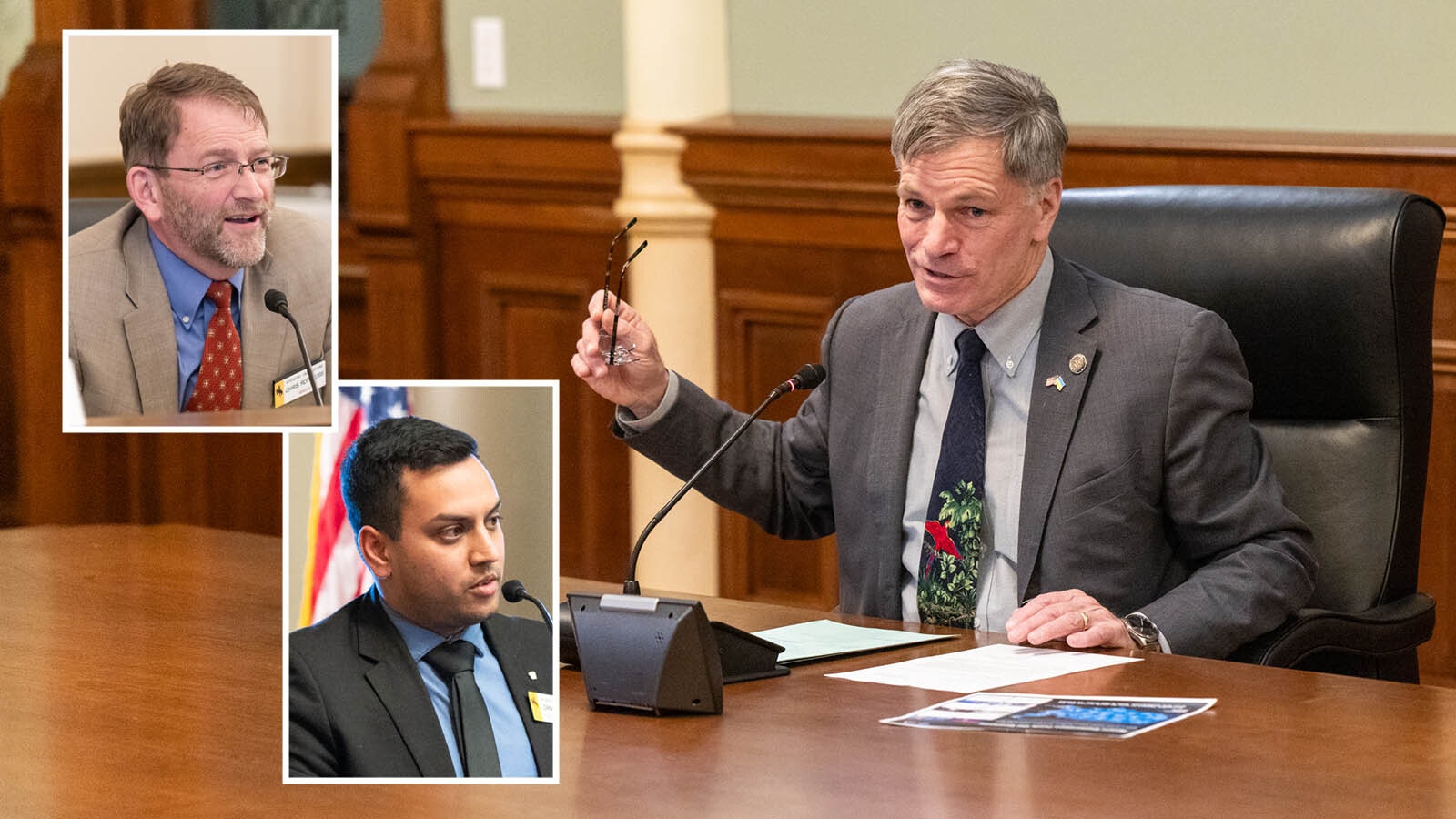Following passionate debate by both sides, the Wyoming Parental Rights in Education Act advanced Friday from a lawmaking committee to the state Senate floor on a 4-1 vote of approval.
The act, Senate File 117, mirrors Florida’s act by the same name, and would prohibit public school teachers in grades kindergarten through third from teaching sexual orientation and gender identity topics to students. It also mandates age-appropriate instruction on those topics after third grade.
Detractors say the bill squelches speech and marginalizes LGBTQ families, while proponents say the bill upholds everyone’s values by leaving the teaching of those topics at home with families.
Why Third Grade?
Sen. Bo Biteman, R-Ranchester, told the Senate Education Committee during its Friday meeting that he wonders if the bill should limit teaching those topics into the higher grades as well.
“I get a lot of emails on this, and I hear a lot form my constituents that yes, even in junior high, high school they want to know what’s going on,” Biteman said. “They don’t want to be cut out of the picture.”
Bill sponsor Sen. Dan Dockstader, R-Afton, answered that for now, he hopes to focus on “the youngest, whom I call our precious ones.”
The bill also mandates that schools notify parents of health and wellbeing questionnaires students are exposed to, and of changes in students’ treatment with respect to issues of their wellbeing.
School districts are exempt from being penalized under the act if they withhold such information from parents based on a reasonable suspicion that abuse will occur if they reveal it.
Though the law is written to involve parents in all facets of students’ wellbeing, it has attracted controversy for its ability to keep teachers from helping children transition genders without parents’ knowledge.

‘Very Serious Word’
The Wyoming Education Association opposes the bill.
Grady Hutcherson, president of the association, said it’s not appropriate for Wyoming and characterized it as discriminatory.
“This specifically and negatively impacts and discriminates against our – truth be told – our LGBTQ+ students and their families,” said Hutcherson, a longtime second grade teacher. “I cannot think of any instance in my 24 years of teaching where I provided instruction (on those themes).”
Biteman countered, saying the discriminatory claim was unfounded.
“When you throw out the word ‘discriminates’ against, that’s a very serious word, allegation,” said Biteman. “Where in this bill specifically does it say we’re going to discriminate against anybody in the state of Wyoming?”
Hutcherson said it would forbid teachers from talking about the families of students from LGBTQ families.
Biteman said the bill simply forbids classroom teaching on gender identity and sexual orientation, and that “I’m not seeing anything about discrimination.”
Hutcherson said the bill is problematic because it can be interpreted multiple ways.
“I could look at a duck and say it’s a moose,” said Biteman, adding that he does not believe the bill to be ambiguous.
Health Screening Exemption
Tate Mullen, government relations director for the Wyoming Education Association, said the bill could prevent child health screenings that are sometimes used to identify abuse, because it has a provision for parents to opt out of such screenings.
He said he also feared the bill would open school districts up to costly litigation and could increase suicides among LGBTQ students.
Back Into The Home
Nathan Winters, president of the Wyoming Family Alliance, countered those arguments, saying the bill limits government interference in people’s lives by driving foundational conversations back into the home.
“Anything less than that… places the state over the family and over the parent, which would be a role in opposition to the foundational principles of our American system of government,” said Winters.
He added that to strip parents of the right to have such conversations with their kids, would “strip families bare and leave them isolated against an all-powerful state.”

Speech Issue?
Sen. Chris Rothfuss, D-Laramie, sparred with Winters, questioning whether the state should limit classroom conversation to the extent the bill proposes.
“This bill seems to be drafted for a specific set of parents’ rights; a specific viewpoint of parents’ rights that, quite honestly, is very different from mine and the constituents I represent,” he said.
Rothfuss said he’d like to normalize LGTBQ acceptance for his young children who are in kindergarten and second grade. He lamented that there’s no opt-out provision in the bill for parents who do want their kids to hear LGBTQ-normalizing discussions in the early grade levels.
Winters said the question only proved his point further.
“It demonstrates the desire you have as a parent for a specific worldview to be instructed for your children,” said Winters. “Other parents in the classroom also have a worldview. So when you have a collision of worldviews, which is what you’re describing, what you need is legislation just like this.”
Winters emphasized again that the legislation would drive such conversations out of the classroom and into the home.
Rothfuss disputed Winters’ answer, saying that “there’s clearly a thumb on the scale, for which parental rights are respected in this piece of legislation versus which parental rights aren’t.”
‘Our Teachers Know Us Better’
Ash Silcott, a high school senior in Cheyenne, told the committee that school instruction can help LGBTQ students to feel accepted.
“I have been queer my entire life,” said Silcott, adding that she was perfectly fine with that until fifth grade, when people started to bully her, and she tried to kill herself.
Many of her LGBTQ friends also have tried to kill themselves, Silcott said.
“We spend seven hours for five days a week for almost nine months out of the year for 13 years of our lives (in school),” Silcott said, becoming emotional. “Our teachers know us better, sometimes than our own parents do.”
Silcott urged the committee to vote against the bill.
Against Bullying
Mike Leman, of the Catholic Diocese of Cheyenne, said in his own testimony that the diocese supports the bill and doesn’t condone bullying of any kind.
He also emphasized, responding to numerous commenters by the bill’s detractors, that the bill text doesn’t forbid students from discussing gender identity and sexual orientation, but forbids teachers from teaching on it.
Leman also noted that the bill forbids all teaching on sexual orientation – which could include heterosexuality. He argued that this undermines the claim that it’s discriminatory.
Committee Chairman Sen. Charlie Scott, R-Casper, voted to advance the bill to the Senate floor, as did Biteman and Sens. Cheri Steinmetz, R-Lingle, and Evie Brennan, R-Cheyenne.
Rothfuss was the lone no-vote on SF 117.





